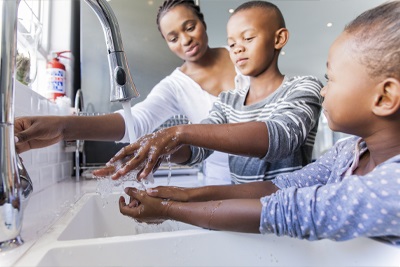 COVID-19 is a new disease and we're still learning how it spreads, the severity of illness it causes and to what extent it may spread in the U.S. But based on the available evidence, children don't appear to be at higher risk for COVID-19 than adults. While some children and infants have been sick with the virus, adults make up most of the known cases to date.
COVID-19 is a new disease and we're still learning how it spreads, the severity of illness it causes and to what extent it may spread in the U.S. But based on the available evidence, children don't appear to be at higher risk for COVID-19 than adults. While some children and infants have been sick with the virus, adults make up most of the known cases to date.
Information about COVID-19 in children is somewhat limited, but current data suggest children with COVID-19 may only have mild symptoms. However, they can still pass the virus onto others who may be at a higher risk, including older adults and people who have serious underlying medical conditions.
Here are some tips from the Centers for Disease Control and Prevention for protecting children from getting sick from the virus that the whole family can practice:
- Wash your hands often with soap and water for at least 20 seconds. Use a hand sanitizer that contains at least 60% alcohol if soap and water are not available.
- Avoid touching your eyes, nose and mouth with unwashed hands.
- Avoid close contact with those showing cold- or flu-like symptoms.
- Practice physical distancing - also called social distancing - by keeping six feet between yourself and others when you're out.
- Avoid non-essential travel.
- Clean and disinfect high-touch surfaces daily in common household areas (e.g. tables, hard-backed chairs, doorknobs, light switches, remotes, handles, desks, toilets and sinks).
- Launder items including washable plush toys as appropriate, using the warmest possible water setting and allowing the items to dry completely.
- Cough and sneeze into your elbow.
- Stay at home when you're feeling sick.
- Practice healthy habits. Sleep, exercise and eating healthy foods are good everyday ways to strengthen our bodies.
LEARN MORE
The Weld County Department of Public Health and Environment's COVID-19 webpage, featuring up-to-date information and educational materials.
The State of Colorado's COVID-19 website with state-specific information, orders and data.
The Centers for Disease Control and Prevention's COVID-19 website, offering resources, information and the latest updates.
The CDC's Guidance for schools and child care programs.
PBS Kids videos, games and activities all about hand washing and staying healthy.